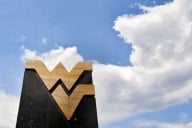You have /5 articles left.
Sign up for a free account or log in.
CHICAGO -- A political science student returns from studying abroad in Chile and turns in samples of her work to the department's chairman, as university policy requires. Although the Chilean institution reported that the student passed her courses with flying colors, the chairman is deeply troubled by the fact that her papers lack citations -- a breach that would earn her F's, if not serious disciplinary trouble for plagiarism, at her home institution. The chairman's wish: Deny the student's study abroad credit and investigate her for academic dishonesty. Is that fair?
That was among the (real life) situations posed to a group of academic officers at a session Wednesday during the annual meeting of the American Association of Collegiate Registrars and Admissions Officers here. The session, " 'Cheating' or 'Sharing'? Academic Ethics Across Cultures," focused on the extent to which differences in students' backgrounds or settings affected their views of academic misconduct -- both what qualifies and how seriously to take it.
The issue has flared with increasing frequency as more and more international students have poured into American colleges, spotlighted by some high-profile incidents, but as the above situation and others discussed at Wednesday's session made clear, dilemmas can arise when American students study abroad as well.
The idea that there might be a special problem with cheating by foreign students might be somewhat stunning, given data showing how common is academic misconduct by students generally; Opal Leeman Bartzis, field director for Butler University's Institute for Study Abroad, who led the AACRAO session Wednesday, recounted statistics from Clemson University's Center for Academic Integrity showing that nearly three quarters of American college students admit to some cheating, and that self reports of "unpermitted collaboration" have risen more than fivefold over time.
But layer on top of that the reality that many countries draw the line between collaboration and cheating, for instance, in very different places. In Germany, sharing of answers is common, and not sharing is considered "selfish" and even taboo, said Bartzis. In Russia, she said, students openly share notes and answers, and in many former Soviet states, instructors routinely expect bribes for grades.
Then factor in the reality that there is great inconsistency among American institutions in how they define, seek to prevent, and punish academic misconduct -- from honor codes to plagiarism detection services -- and it's little wonder that some international students may run into trouble when they come to study in the U.S.
Dennis Bricault, a Spanish professor and director of English as a Second Language programs at Chicago's North Park University, recounted at another session on academic dishonesty Wednesday that one of his ESL courses -- in which the 12 students speak seven languages and use five alphabets -- features "very different perspectives on what's acceptable to do in class." Part of his teaching, Bricault said, involves drawing lines for when his students move on to more traditional classes. "I say, 'Be careful, don't do this, because when you go in the the mainstream, it's going to get you kicked out.' "
Immigrant students learning English are often encouraged to do "patch writing" -- stitching together writings produced by other -- as a "transition to language independence," Bartzis noted. "So if they learn that way, they may not remember later that they need to cite."
Several of the case studies compiled by Bartzis and Anne Hayner, associate director for international development and alumni relations at the University of Notre Dame, involved international students running afoul of their American institutions' cultures and norms -- one law student who told a peer what the questions were on an oral exam ("I did not say anything about my answers! How can that be cheating?" he asked the administrator who busted him), and a Chinese student who includes an extensive bibliography on a paper but quotes significant passages (from the books in the bibliography) without attribution.
But the registrars and admissions officers seemed more struck by the stories of American students who got crossways with the cultures of the countries in which they studied abroad, like the student returning from Chile. Asked whether they would endorse the poli sci chairman's approach to disciplining the student, they registrars decidedly did not. If the student had satisfied the requirements of the Chilean institution, and the home university had preapproved the student to study there, "how can the home school ask questions of whether the grade they gave was correct?" said one audience member.
"Your university made the decision to send the student to that institution," said another. "If this is an accredited institution, you have to accept that."
Another said she believed the student had actually had a vintage study abroad experience. Study abroad is about students learning in a different way, she said. "Clearly this student has adapted, learned in a different way, and I think that enhances learning."









